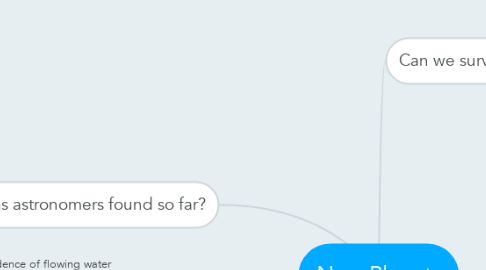New Planets
by Michael Lazzarotti

1. What has astronomers found so far?
1.1. In 2014 the Kepler telescope found a planet that is similar to Earth. The planet, known as Kepler 186f orbits a star 490 light years away from Earth. It is also in the "Goldilocks Zone". This means that it is the perfect distance away from the sun to possibly have water and can support human life. Space.com
2. Mars?
2.1. In 2015 NASA found evidence of flowing water on Mars. This was found by recurring slope lineae which is caused by flowing water. As most water on Mars is in the form of ice, now scientists are saying that there is flowing water on the surface of Mars. This supports the theory that Mars can support human life. Even though Mars is desert ridden and stripped of its magnetic field, scientists are still coming up with theories on how we can live on Mars, like terraforming. Or if we are unable to live on Mars, we can search for natural resources on Mars that could be Extracted and used on Earth if Earths resources run out. NASA.gov
3. Why do humans study and explore other planets in and around our solar system?
3.1. Humans Study new planets to see if that planet could possibly support human life. They do this because they know that Earth and its resources will not last forever. They realize that if the human race wants to survive, we need to find other places to get the resources that we need to live.
4. Can we survive until 2100 on Earth?
4.1. If by 2100 we haven't colonized other planets, we would still be living on Earth but our natural resources may be depleted. Stanford university predicts that we will run out of oil in 40 years. If we haven't found alternative energy sources by then, our next option is to extract resources from other planets or asteroids. This is another reason why scientists study planets, to find resources that can be used for human survival. If Mars has a huge oil deposit and we are running out of oil, that saves us. So if we are able to extract oil and other natural resources on other planets before Earths resources run out, than we can survive until 2100. Stanford Univ.


